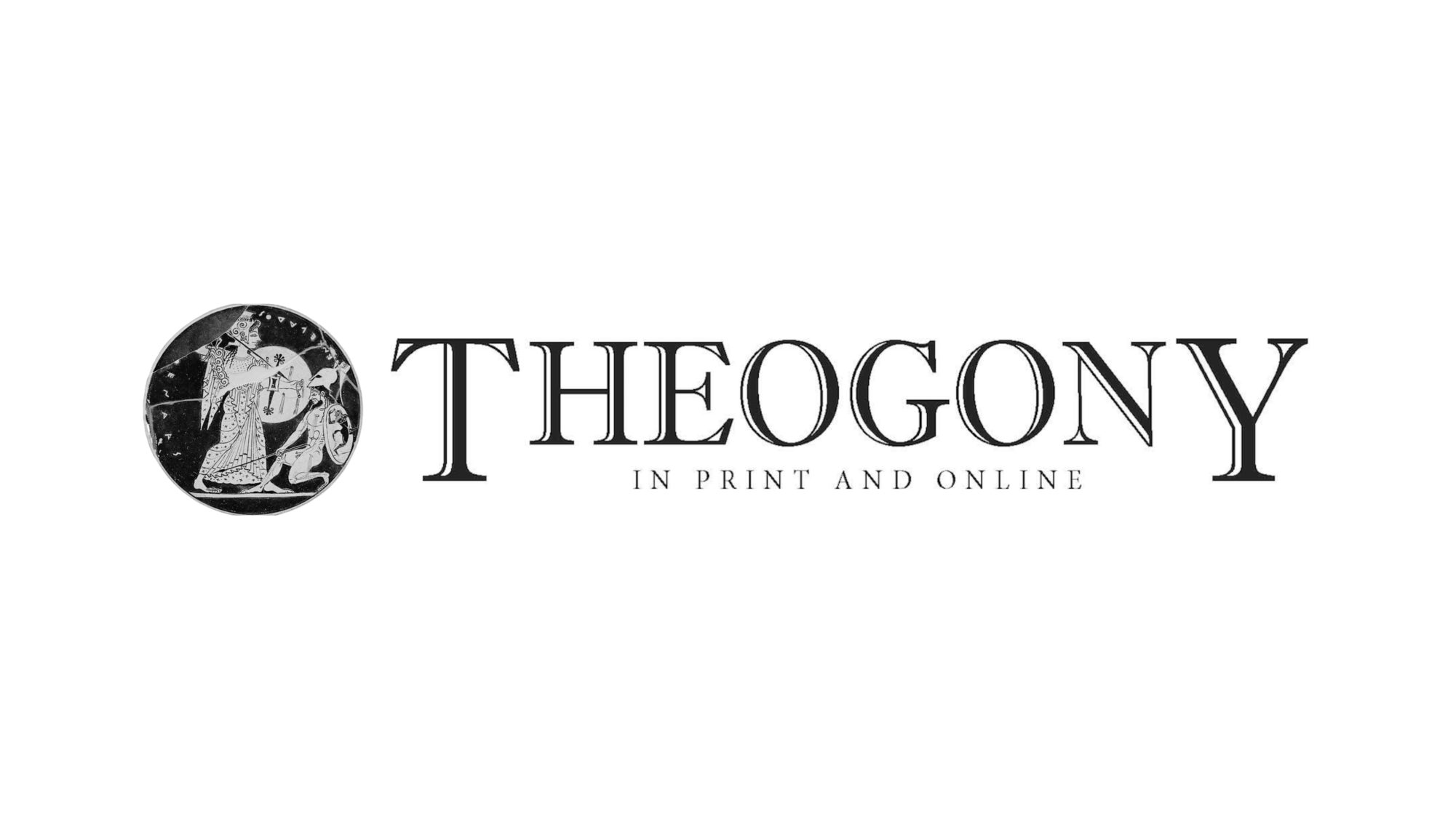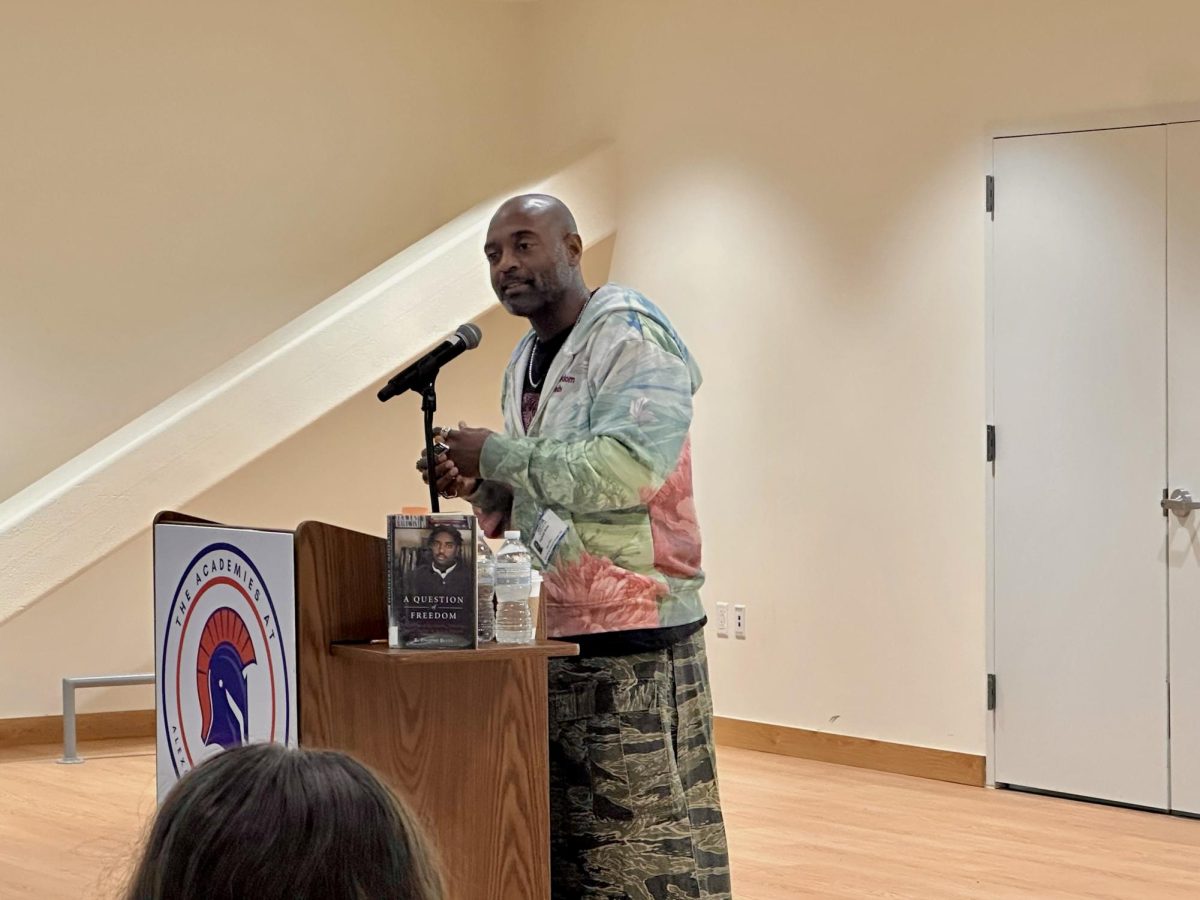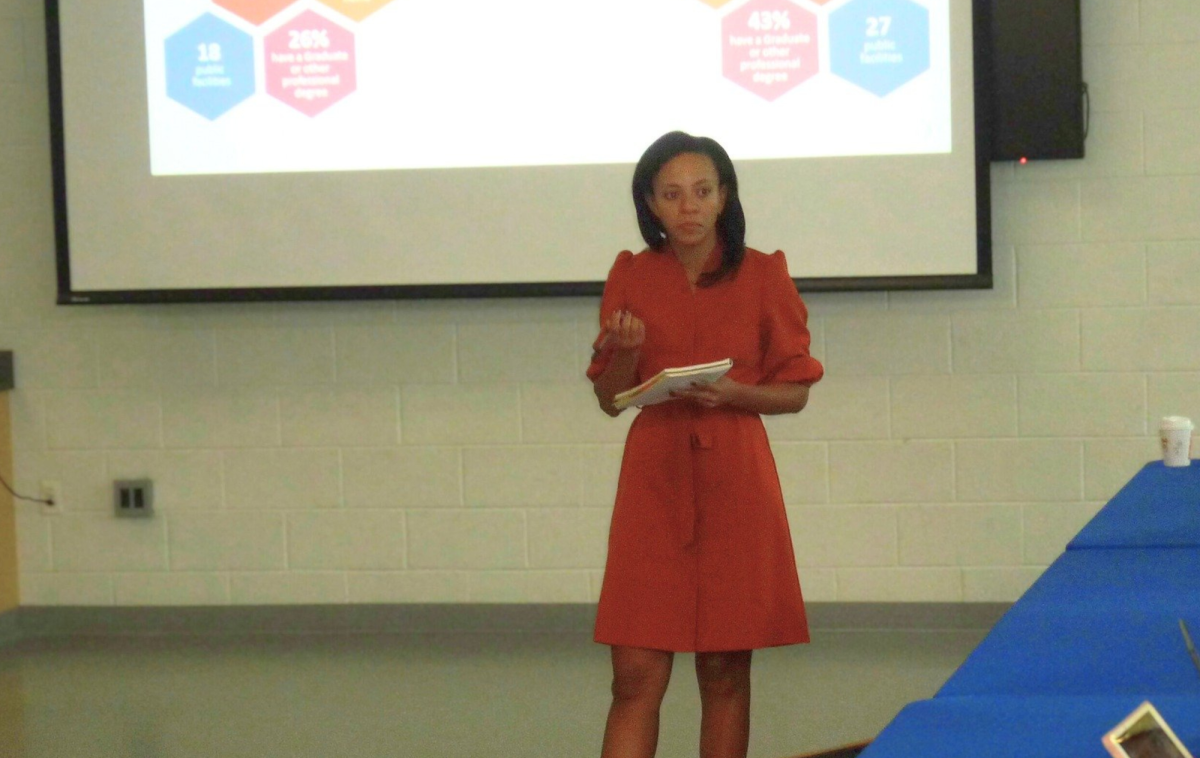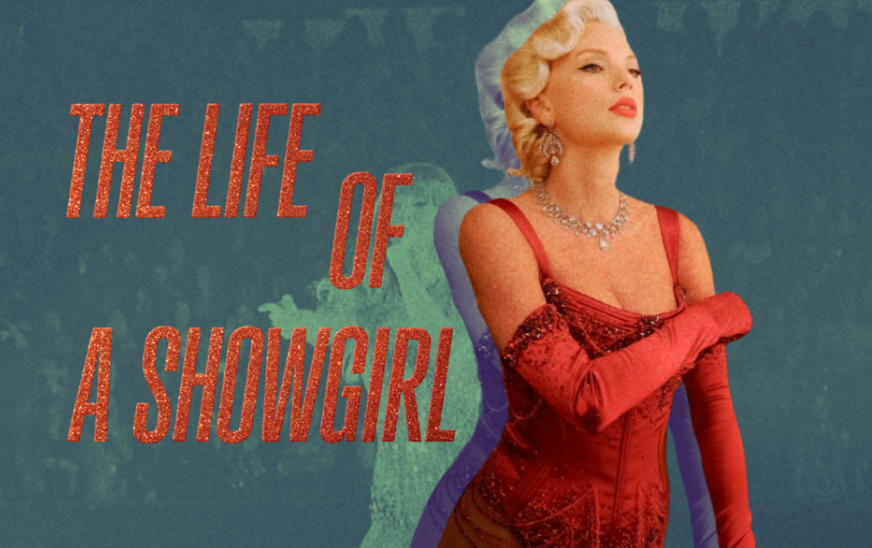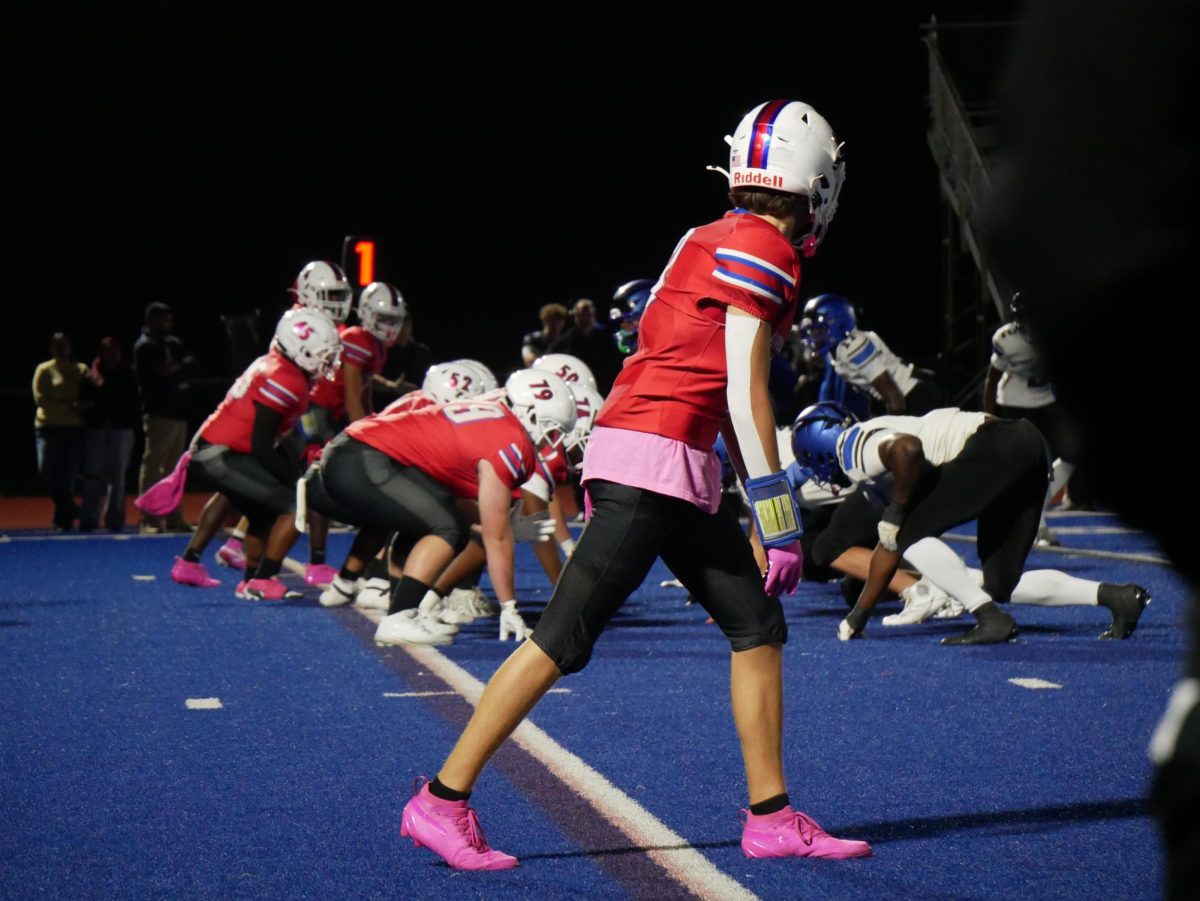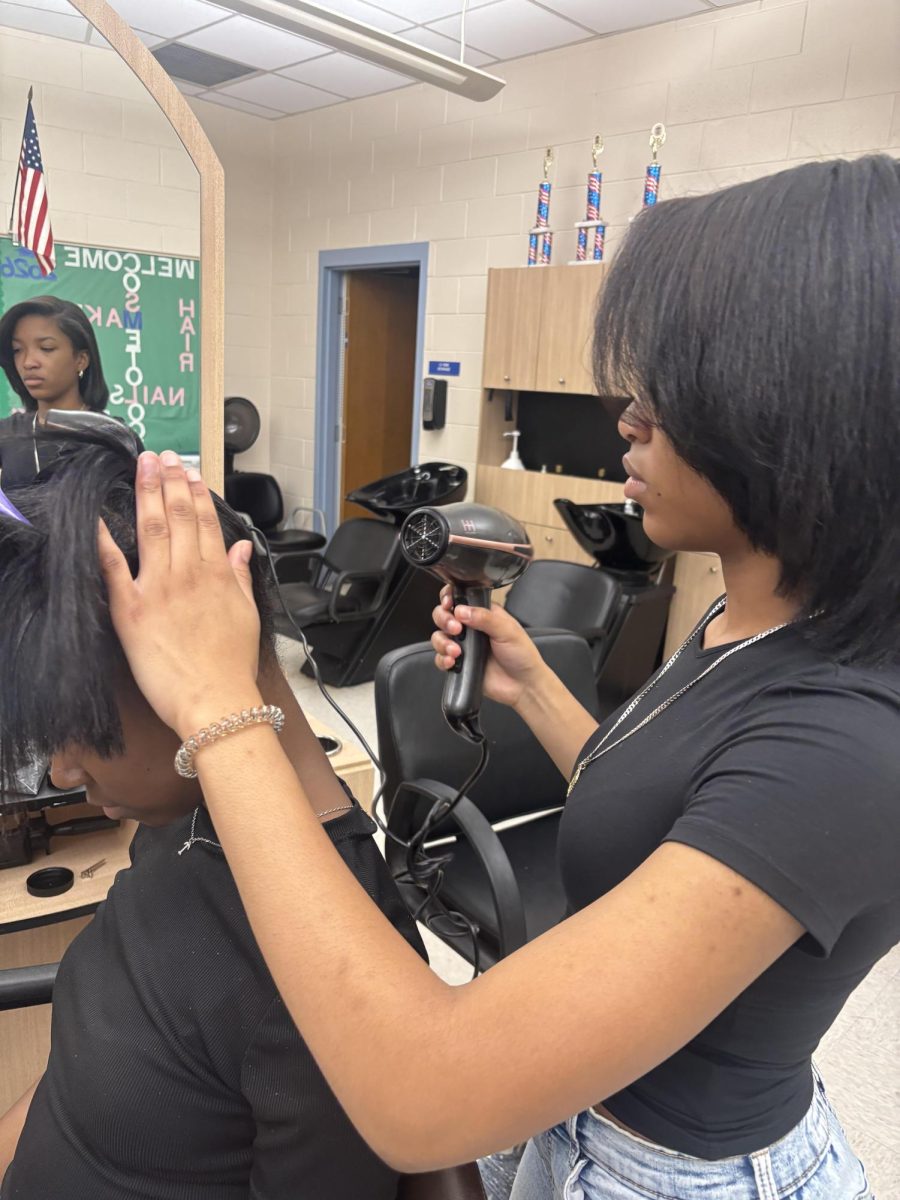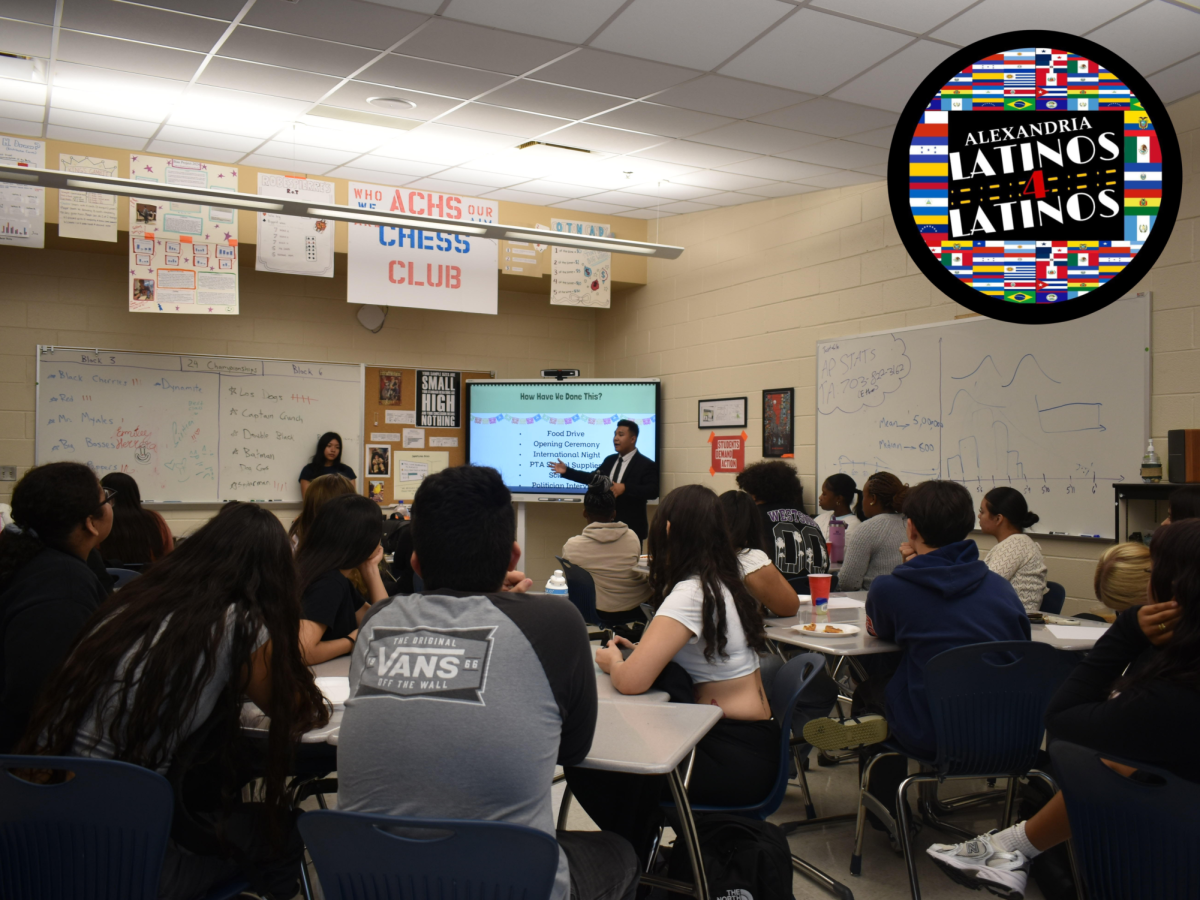The decade after turning 16 is arguably the most formative of a person’s life: it’s filled with milestones like prom night and a drivers license test; it’s when many decide on a career path and develop a clearer sense of identity as the prefrontal cortex fully matures. But when Reginald Dwayne Betts, an honors student and class treasurer at Suitland High School in Maryland, committed an armed carjacking in 1996, he unwittingly chose to spend those defining years in a prison cell.
With a friend and a reckless idea, Betts committed six felonies in a matter of seconds. Tried as an adult, he was sentenced to nine years in prison. The experience inspired his memoir A Question of Freedom, in which he reflects on coming of age and searching for identity in solitary confinement. Today, Betts is an award-winning poet, author, and lawyer with a Juris Doctorate from Yale Law School.
On Friday, September 26th, Betts visited the Minnie Howard forum to speak to dozens of ACHS seniors reading A Question of Freedom for English class. During the event, he recounted his years in prison– nine years that, though grim and “haunting,” pointed him toward writing.
Throughout his sentence, Betts used his isolation as a time to learn. “I wasn’t consciously accepting the fact that I couldn’t be where I wanted to be, so I found more and more interesting ways to live in the moment.” He became nearly fluent in Spanish, taught himself to juggle, and did 25 push-ups every time he cursed because a fellow inmate told him he cursed too much and he “just wanted to prove him wrong.” But, most importantly, Betts’ time in prison introduced him to literature. Spending his days reading and writing, he left prison in 2005 with what he described in an essay published in the New York Times Magazine as “a thousand bad poems.”
After his release, Betts said he was “just trying to figure out what to do from one day to the next.”
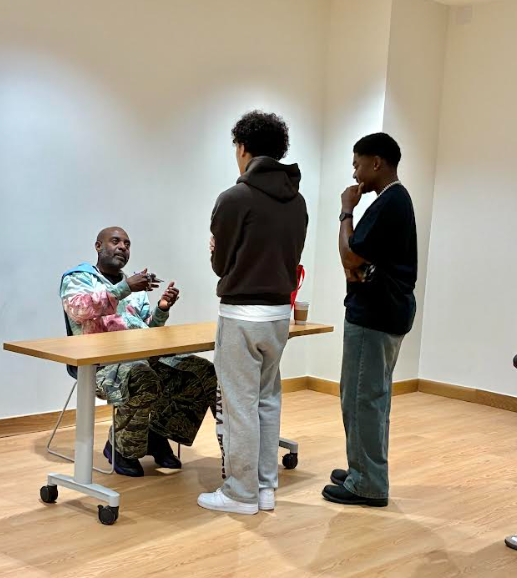
“I got a job at a bookstore and I was like, ‘This is dope. I love working at a bookstore.’ Then I got my first paycheck and was like ‘This ain’t fly,’” he said, recalling the moment he decided to pursue higher education and a career in law.
That same year, Betts also founded YoungMenRead, a book club where he led discussions with African American boys from ages 11 to 16– not just about literature, but about their lives, struggles, and ambitions.
“The coolest thing about my life is that I’ve never done anything that people expected me to do,” Betts said. “I had never in my life thought about a book club, I didn’t actually even know what a book club was. But I started [YoungMenRead] and it radically changed my life.”
One day, a journalist from The Washington Post approached him about writing a story on the club.
What she didn’t know was that Betts had spent nearly a decade in prison. When she found out, Betts hesitated to share that part of his life publicly– even if it meant the story would be killed.
“I was like, ‘my mom doesn’t want people to know that I was in prison. She’s ashamed enough, I’m good.’” he said. Eventually, after one of his colleagues had a conversation with his mother, she agreed. A few weeks later, the story ran on the Washington Post’s front page. Shortly after, a publisher approached Betts with the idea of writing a book about his experience. “And that’s how I got my first book deal.”
Since then, Betts has published numerous works– books, poems, and essays– and credits much of his passion for writing to the years when literature was his only outlet.
Still, Betts emphasized that access to books in prison is often limited.
“In a lot of ways, prisons are like schools: they aren’t all created equally. You don’t have all the same quality of teachers, you don’t have all the same quality of facilities,” Betts said. “If you can’t make that happen for public schools where everybody loves the children, how are you going to make that happen for prisoners?”
To address that inequality, Betts founded Freedom Reads in 2020– a nonprofit that has raised millions of dollars to open libraries in prisons across the country.
“We should think about how we can make each of these individual spaces better institutions, and I try to do that with Freedom Reads,” he said. “I try to create those opportunities for people like me in prison. It’s a long walk– one step at a time.”
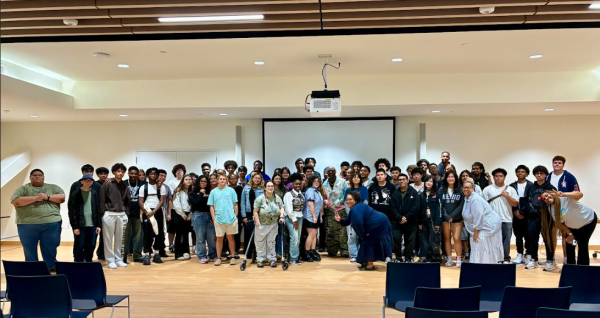
Betts is also a spokesperson for Campaign for Youth Justice, and regularly speaks on his experience with the justice system. Yet, he still approaches every lecture with humility. “I want to walk in with humility and recognize that just because I have a story doesn’t mean that it’s a story that you need to hear,” he said.
ACHS students, however, were listening. “He was very inspirational,” said senior Caleb Goodman, recalling Betts’ visit to ACHS. “He had an impact on everybody in that room, whether it was through his way with words or just getting to meet with him one-on-one.”
For the students who filled the forum that day, Betts’ story held different meanings. To some, A Question of Freedom is a cautionary tale– a reminder that one decision can induce life-altering repercussions. To others, it’s a story of perseverance and proof that passion can transcend even the most difficult circumstances. And to many, it’s simply an honest, powerful read. “It’s definitely real, it feels really raw,” Goodman said. “He doesn’t sugarcoat anything.”
Betts said that passion and a positive mindset are what helped him survive prison, but continue to guide his success today– lessons he urged ACHS students to adopt as their own.
“Your enemy’s dream is for you to obsess over the negativity,” he said. “At sixteen I was suddenly in prison, and I knew that I was at the bottom rung of every life that exists in America. But I told myself I would be a writer. The dream that you hold on to does not have to be predicated on the skills that you have now or what you know that you want to do right now.”
